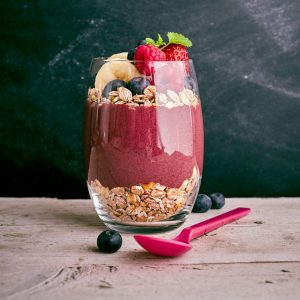Over 22 million Americans suffer with heartburn every day. Sometimes heartburn is a sign of a more serious condition, like acid reflux or gastroesophageal reflux disease (GERD.) In each case, stomach acid seeps into the esophagus during digestion. If the lower esophageal sphincter doesn’t close correctly, it allows acid to travel back up, causing a burning sensation. The symptoms are exacerbated by any condition that places pressure on the stomach, such as pregnancy, obesity, or constipation.
Spice and acidic foods can trigger heartburn and increase the damage from acid. Avoiding heartburn triggers doesn’t mean you can’t enjoy rich flavors in your diet, however. Here are some common heartburn triggering foods, and alternatives:
Heartburn Triggering Foods and Alternatives
Tomato Sauce
Tomatoes are an acidic fruit, and during the cooking process, the acid is released. If you just can’t give up tomato’s tangy, delicious goodness, consider adding shredded carrot or a little baking soda to neutralize the acid. Alternatives include pesto, or olive oil with parsley and oregano for an Italian flair without the burn.
 Citrus Fruits
Citrus Fruits
Citric acid is derived from fruits like oranges, grapefruit, lemons, and tangerines. Acid, of course, can increase discomfort from acid reflux or GERD. Instead, snack on melon, berries, or other less-acidic fruits.
Fried Foods and Dairy
Heavy, fatty, greasy foods can slow down the digestive process, making it more likely that acid can work its way up through the LES and into the esophagus. Whole fat milk and dairy products can also create a slowdown in digestion. Opt for reduced-fat dairy options, and grilled, baked, poached or roasted versions of fried foods.
Spicy Foods
Spicy foods like garlic, onions, and peppers really cause a hot time in the stomach. As tasty as a good bowl of spicy chili can be, the consequences can be unpleasant. Alternatives include flavorful but less-spicy herbs like cilantro, rosemary, ginger, and thyme. Instead of using fresh or whole garlic and onions, try the dehydrated versions, or substitute parsley, dill, or basil.
Coffee
Many coffee drinkers are self-avowed addicts, making it a difficult drink to give up. Unfortunately the caffeine and acids in coffee can be problematic. Try a cup of black tea, or even decaffeinated coffee, which may have less of an effect.
Alcohol
Alcoholic drinks relax the esophageal sphincter, contributing to heartburn. If you wish to indulge, do so carefully by avoiding citrus based drinks and carbonated mixers, and drinking a lower proof alcohol to reduce the symptoms.
Often, dietary changes can relieve heartburn symptoms. If not, talk to your doctor about medications that may help control acid production.

